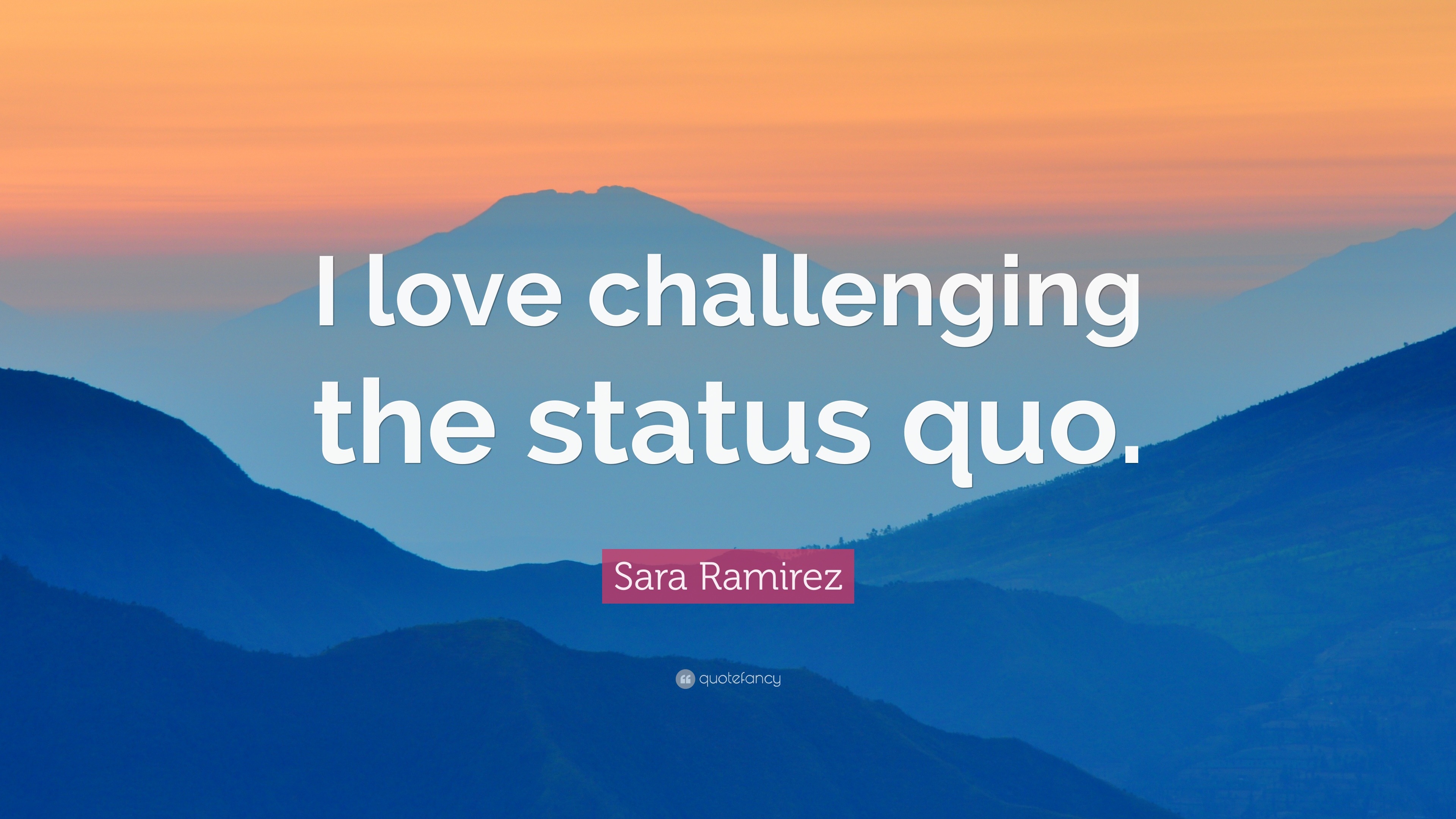Facing Retribution: The High Cost Of Challenging The Status Quo

Table of Contents
Professional Repercussions of Challenging the Status Quo
Challenging ingrained practices and power structures within an organization rarely comes without professional ramifications. The potential consequences can be severe, impacting career trajectory and workplace relationships.
Loss of Employment or Promotion Opportunities
Directly challenging the status quo can lead to tangible negative consequences for your career. This can manifest in various ways, from subtle exclusion to outright dismissal. Companies, even those that claim to value innovation, often prioritize maintaining the existing order.
- Negative performance reviews despite strong work: Subjectively negative reviews can become a tool to justify hindering advancement.
- Exclusion from key projects and decision-making processes: Being systematically sidelined limits opportunities for growth and visibility.
- Being sidelined or isolated within the workplace: A deliberate campaign of isolation can make work unbearable and stifle career progression.
For instance, consider the case of a software engineer who reported a critical security flaw, only to be subsequently passed over for a promotion and eventually laid off during a restructuring, despite consistently high performance reviews prior to their disclosure.
Damaged Reputation and Relationships
Challenging the established order often damages relationships. Those in power, threatened by dissent, may actively work to discredit you.
- Difficulty building trust and collaboration: Once labeled a "troublemaker," it becomes harder to foster positive working relationships.
- Social isolation and ostracization: Colleagues may avoid you, fearing association with someone challenging the norm.
- Damage to professional reputation and credibility: Rumors and misinformation can severely tarnish your professional image.
This reputational damage can extend beyond the immediate workplace, making it challenging to find new employment opportunities.
Increased Workload and Stress
The fight against the status quo is often an uphill battle, leading to increased workload and significant stress. Resistance to change and lack of support can create a toxic work environment.
- Increased scrutiny and micromanagement: Supervisors might excessively monitor your work, creating a hostile atmosphere.
- Resistance to change and lack of support: Your initiatives may face active opposition, leaving you feeling isolated and unsupported.
- Elevated stress levels and potential for burnout: The constant pressure and lack of support contribute to mental and physical exhaustion.
This added stress can lead to burnout, decreased productivity, and even health problems.
Personal Consequences of Challenging the Status Quo
The impact of challenging the status quo extends far beyond the workplace, significantly affecting personal well-being and relationships.
Emotional Toll and Mental Health Impacts
The emotional toll can be immense, impacting mental health. The constant threat of retribution and the emotional labor involved in fighting for change can take a significant toll.
- Feelings of isolation, fear, and anxiety: Facing opposition and potential retaliation naturally causes stress and anxiety.
- Increased stress and sleep disturbances: The ongoing conflict can disrupt sleep patterns and increase overall stress levels.
- Potential for depression and burnout: Prolonged exposure to a hostile work environment can lead to serious mental health issues.
Seeking support from mental health professionals is crucial for mitigating these risks.
Social and Family Strain
The stress of challenging the status quo often spills over into personal life, impacting relationships with family and friends.
- Reduced time for family and friends: The added pressure and workload can leave little time for personal relationships.
- Difficulty disconnecting from work-related stress: The constant worry and anxiety can make it difficult to relax and recharge.
- Strained relationships due to emotional exhaustion: Chronic stress can lead to irritability and resentment, damaging personal relationships.
Mitigation Strategies for Challenging the Status Quo
While the risks are significant, individuals can take steps to mitigate the potential negative consequences of challenging the status quo.
Building a Strong Case and Gathering Support
Before challenging the established order, carefully prepare your argument and secure support from allies.
- Documenting evidence carefully and thoroughly: Maintain detailed records of any relevant information.
- Seeking allies and building a support network: Identify individuals who share your concerns and can offer support.
- Presenting a well-researched and persuasive argument: Construct a strong case based on facts and data.
Navigating Organizational Politics and Power Dynamics
Understanding the organizational culture and power dynamics is crucial for effectively navigating the challenges.
- Understanding the organizational culture and power dynamics: Identify key players and their influence within the organization.
- Choosing the right time and method for raising concerns: Select a time and approach that maximizes the likelihood of a positive outcome.
- Developing effective communication strategies: Practice clear, concise communication to effectively convey your message.
Seeking Legal Counsel and Protection
If you face significant retaliation, seek legal counsel immediately.
- Understanding whistleblower protection laws: Familiarize yourself with relevant legislation in your jurisdiction.
- Consulting with an employment lawyer: An attorney can advise you on your rights and legal options.
- Documenting all instances of retaliation: Maintain a detailed record of any negative actions taken against you.
Conclusion
Challenging the status quo can carry significant professional and personal consequences, ranging from job loss and damaged reputations to severe emotional distress and strained relationships. However, understanding these potential risks allows for proactive mitigation. By carefully building a strong case, securing support, navigating organizational politics effectively, and knowing when to seek legal counsel, individuals can better protect themselves while striving for positive change. While challenging the status quo can be fraught with challenges, the potential for positive impact and meaningful change often makes the risks worthwhile. Understanding the potential for retribution when challenging the status quo is crucial for navigating organizational change effectively and protecting your well-being.

Featured Posts
-
 The Ultimate Guide To Escaping To The Country
May 25, 2025
The Ultimate Guide To Escaping To The Country
May 25, 2025 -
 Executive Office365 Accounts Targeted In Multi Million Dollar Heist
May 25, 2025
Executive Office365 Accounts Targeted In Multi Million Dollar Heist
May 25, 2025 -
 Unsafe Beach Ranking Prompts Myrtle Beach Response
May 25, 2025
Unsafe Beach Ranking Prompts Myrtle Beach Response
May 25, 2025 -
 As Monaco Groupe Convoque Pour Le Derby Contre Nice
May 25, 2025
As Monaco Groupe Convoque Pour Le Derby Contre Nice
May 25, 2025 -
 Supermodel Naomi Kempbell V Derzkoy Fotosessii
May 25, 2025
Supermodel Naomi Kempbell V Derzkoy Fotosessii
May 25, 2025
